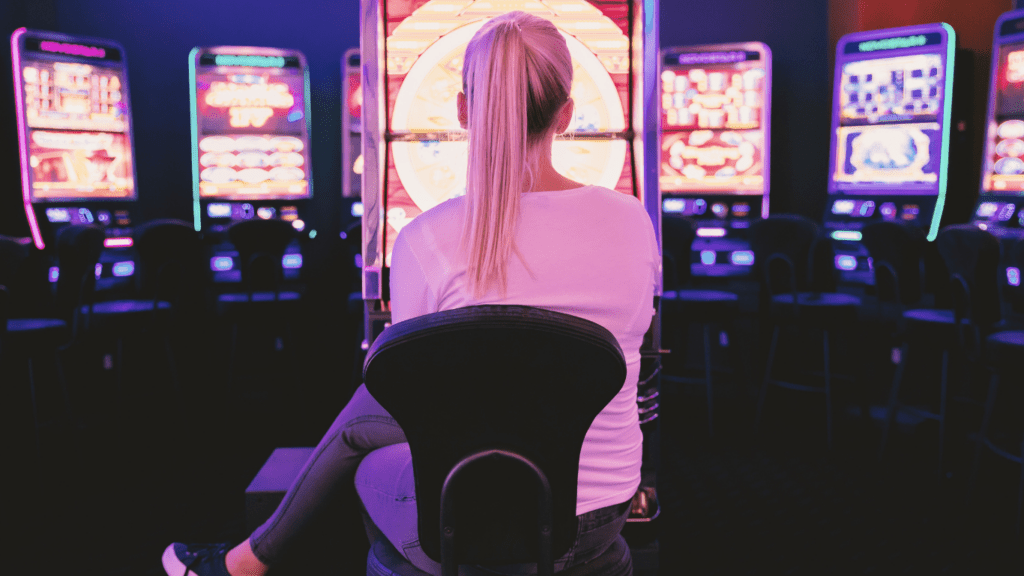Understanding Problem Gambling
Problem gambling encompasses various gambling behaviors that disrupt personal, family, and professional life. It’s crucial to recognize these behaviors early to prevent further consequences. Problem gambling often manifests as a persistent urge to gamble despite negative impacts.
One primary indicator includes the need to gamble with increasing amounts of money to achieve excitement. Frequent failure to cut back or stop gambling also signals a problem. The inability to control gambling activities can result in financial difficulties and strained relationships.
Emotional effects, such as anxiety and depression, are common among individuals exhibiting problem gambling. Missing work, school, or other obligations due to gambling further highlights the severity of this issue. Addressing these behaviors is important for regaining control and preventing adverse outcomes.
Key Signs of Problem Gambling in Slot Play
Identifying problem gambling early helps players avoid long-term issues. These signs become evident as behaviors shift from casual enjoyment to harmful obsession.
Escalating Bets and Losses
Problem gambling often involves increasing bet sizes. Players might start with small bets but then risk more money to chase losses or heighten excitement. When losses mount, problem gamblers may attempt to recover by making even larger bets, hoping for a recovery that rarely comes. This cycle of escalating bets points to an unhealthy relationship with slot play.
Obsessive Thoughts and Focus
Persistent preoccupation with slots is a red flag. Players may constantly think about slot games, plan future sessions, or relive past experiences. This intense focus can interfere with daily activities and relationships. When thoughts revolve around gambling at the expense of other interests or duties, it’s indicative of problematic gambling behavior.
Ignoring Limits and Responsibilities
Problem gamblers frequently disregard self-imposed limits and personal duties. They might spend beyond their budget, neglecting bills and essential expenses to continue playing. Ignoring set financial and time boundaries further signifies gambling issues. If players overlook responsibilities like work or family commitments due to gaming, the behavior warrants serious attention and intervention.
Behavioral Indicators
Spotting behavioral indicators helps in identifying problem gambling in slot play. Recognizable patterns often appear in emotional and social behaviors.
Emotional Distress and Mood Swings
Frequent mood swings and emotional distress arise from problem gambling. I’ve seen players become irritable or agitated when unable to gamble. Such individuals might experience anxiety or depression, driven by the pressure and stress of gambling losses. These emotional changes often correlate directly with gambling activities, intensifying during periods of significant loss.
Social Withdrawal and Isolation
Social withdrawal and isolation typify the behavior of those deeply engaged in problem gambling. People might avoid loved ones to hide their gambling habits. I’ve observed that these gamblers lessen their social interactions, choosing gambling over family gatherings or social events. This isolation can severely impact relationships, leading to further personal and social issues as they alienate themselves from their support networks.
Risk Factors for Problem Gambling

Recognizing risk factors is crucial in understanding problem gambling in slot play. Several elements contribute to this behavior, ranging from personal attributes to environmental factors.
Personal and Psychological Factors
- Psychological traits significantly impact gambling vulnerabilities.
- Personality traits like impulsivity can drive excessive gambling.
- Impulsive individuals often pursue immediate rewards without considering consequences.
- Emotional challenges such as stress, anxiety, and depression may propel players towards slot machines as a coping mechanism.
- Existing mental health disorders can exacerbate the tendency for compulsive gambling as individuals might seek escapism through gambling.
Environmental Influences
External surroundings also shape gambling tendencies. Casinos, often equipped with enticing atmospheres and flashy advertisements, can influence gambling habits. The presence of nearby gambling establishments increases accessibility, making it easier for individuals to engage in slot play.
Social circles play a crucial role too; if friends or family members regularly gamble, individuals might feel inclined to join, creating a normalized environment for gambling. Availability and accessibility, paired with a lack of restriction, can heighten the risks of developing problematic gambling behaviors.
Seeking Help and Support
An essential step in addressing problem gambling in slot play is knowing when to seek help and support. Various resources exist to assist individuals in overcoming gambling issues and regaining control of their lives.
Professional Treatment Options
Therapists offer one-on-one counseling, providing personalized guidance tailored to individual needs. Behavioral therapy involves modifying gambling behaviors and thoughts, focusing on creating healthier habits. Support groups like Gamblers Anonymous create an environment for sharing experiences and receiving peer support. Rehabilitation centers provide comprehensive treatment plans, including medical supervision and therapeutic interventions, to aid recovery.
Self-Help Strategies and Resources
Setting clear limits on gambling time and expenditure helps maintain control and prevent excessive play. Budgeting involves allocating a specific amount solely for entertainment to avoid overspending. Educating oneself on gambling addiction through:
- books
- articles
- online courses
fosters better understanding and awareness. Mobile apps like gambling blockers can restrict access to online gambling sites, encouraging a break from gambling activities. Implementing mindfulness techniques like meditation and deep-breathing exercises reduces stress and promotes emotional stability.








